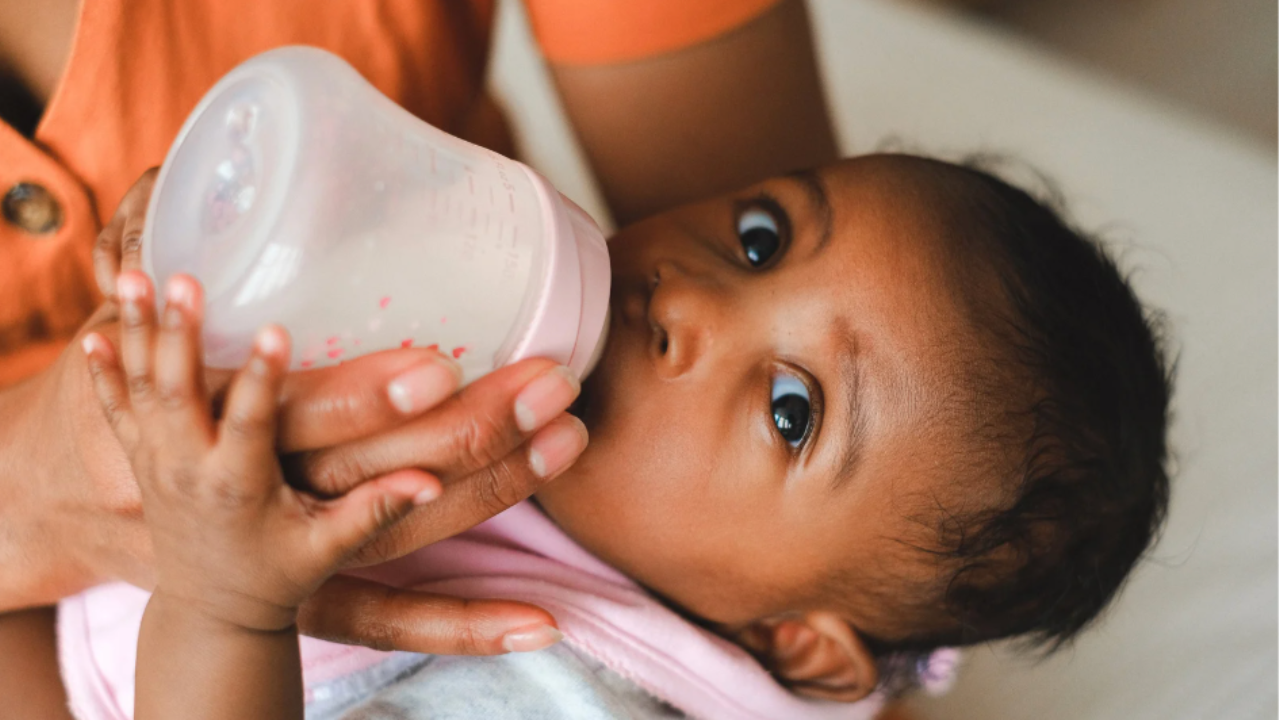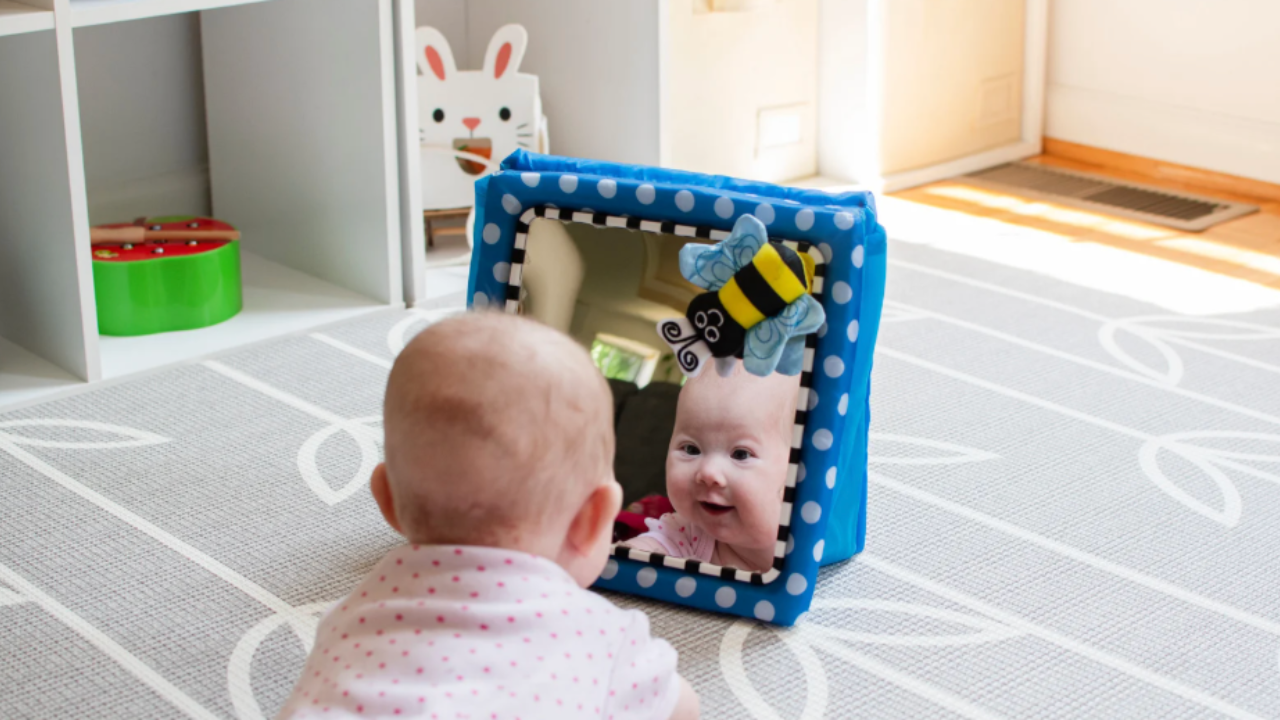Repetition: The Secret to Helping Your Baby Reach Milestones
As a pediatric OT and mom, there is one golden rule when it comes to helping your baby reach those important baby milestones: repetition is key. While this might seem like a simple concept, it’s actually the most important thing to remember from birth and beyond. Repeating activities, movements, and sounds with your little one is one of the best ways to support their progress toward key baby milestones. From early tummy time to rolling over, babbling, sitting up, and crawling—practice, patience, and plenty of repetition are your baby’s best tools for reaching baby milestones.
So, why is repetition the key to baby milestones!?
Babies are like little sponges, constantly absorbing everything around them. They learn through their surroundings, and just like us, they need to experience things multiple times to fully grasp and master them. Repetition is what allows babies to connect the dots and reach their baby milestones.
Imagine learning to ride a bike. You wouldn’t expect to hop on and master it immediately, right? The same goes for baby milestones. The more your baby practices a skill, the more their brain makes connections, and the closer they get to achieving those baby milestones like rolling over, crawling, and walking. Every little bit of repetition helps them get stronger and more confident in reaching the next big milestone.
Muscle memory + baby milestones
One reason repetition is so effective in supporting baby milestones is that it builds muscle memory. Whether it’s strengthening their core for sitting up, their legs for walking, or even their vocal cords for babbling, each time your baby repeats an action, they’re working toward achieving a new baby milestone.
For example, when your baby is learning to crawl, they might start by rocking back and forth on all fours. As they repeat this movement, their muscles get stronger, and eventually, they’ll figure out how to move forward—reaching the crawling baby milestone! Repetition truly is the key to reaching all kinds of baby milestones.
Repetition and consistency is important in correcting "flat head" too! Read more about how to conservatively correct "flat head" without a helmet here!
Cognitive development + baby milestones
Repetition isn’t just about physical skills—it also plays a huge role in cognitive development, which is essential for baby milestones like language, social, and emotional growth. Every time your baby hears you sing a song, read a book, or say a word, their brain is making new connections. Over time, these repeated experiences help them achieve cognitive baby milestones, such as recognizing familiar words or patterns and improving memory.
Ever wonder why your baby loves hearing the same nursery rhyme over and over? It’s because repetition helps their brain process it, leading to important baby milestones like learning to speak and recognize sounds. Repetition lays the foundation for these exciting milestones.
So, how do we incorporate repetition into our day?
First, it’s so important to create a routine. Your routine will look different than mine, and others but, easily adding in practice for motor, social, and other milestones throughout your day is huge. In regards to tummy time, tummy time is often difficult at first, but with repetition your baby learns to tolerate this position (and even dare I say enjoy!). My favorite way to complete tummy time was on the changing table, or on our footstool in the living area. I could get eye level with my baby, sing to her, and fitting this activity into our daily routine was very important for reaching those baby milestones. Read more about how I fit learning into my baby's day here!
Next, repeating sounds and words is SO important for speech, social, and emotional development. Repeating words, gestures, and baby sign language in appropriate settings and contexts sets your baby up for success in the very beginning in these areas. I recommend parents begin to introduce baby sign language at 6 months old, typically when starting solids. Before this age, you can label simple things around the home while completing normal tasks. You may say “OPEN” in an exciting voice while you open the fridge with your baby around. This may seem silly at first, but this repetition is laying foundations for your baby but also getting you in the mindset to encourage learning too!
Encouraging repetitive play is also another great way to encourage all sports of baby milestones! When sitting on the floor with your baby, encourage them to place shapes into a shape sorter (with help of course) after the age of 12 months. This repetition not only encourages hand skills, but problem solving and higher level cognitive skills too. Additionally, singing songs with your baby and gesturing throughout teaches your baby so many skills relating to social and communication skills, but also supports attention skills too. Using the same toy is great, but a toy rotation has benefits too! Read more about toy rotations here.
Practicing physical milestones is another great way to support your baby’s milestones through repetition. Physical milestones come easy for some babies, but others need small amounts of support. I encourage all parents to know and understand what to expect and how to encourage milestones with their baby in all stages of infancy. Understanding how to offer appropriate tummy time at different ages, or support a baby's crawling skills not only sets the baby up for success, but the parent too! Need tummy time support? Read this blog to learn more.
Lastly, always remember to celebrate even the smallest progress! The smallest progress is laying a TON of foundations for BIG progress. I always encourage parents to evaluate and find excitement in “mini-milestones”. This may be baby grasping feet in prep for rolling, or attentively looking at you while you sing a song. All of these mini milestones are going to lead to BIG milestones and they deserve to be celebrated!
Patient is important! Baby milestones take time.
It’s easy to feel impatient when it seems like your baby isn’t reaching certain baby milestones as quickly as others. But every baby is different, and they all reach their baby milestones in their own time. Your baby might be slower with physical milestones, but they could be ahead in areas like feeding or social development.
The key is to keep giving your baby opportunities to practice and explore. Through repetition, they’ll eventually master each baby milestone at their own pace. So keep singing that favorite song, keep practicing tummy time, and keep cheering your baby on as they work toward their baby milestones. Your consistent support will make all the difference.









